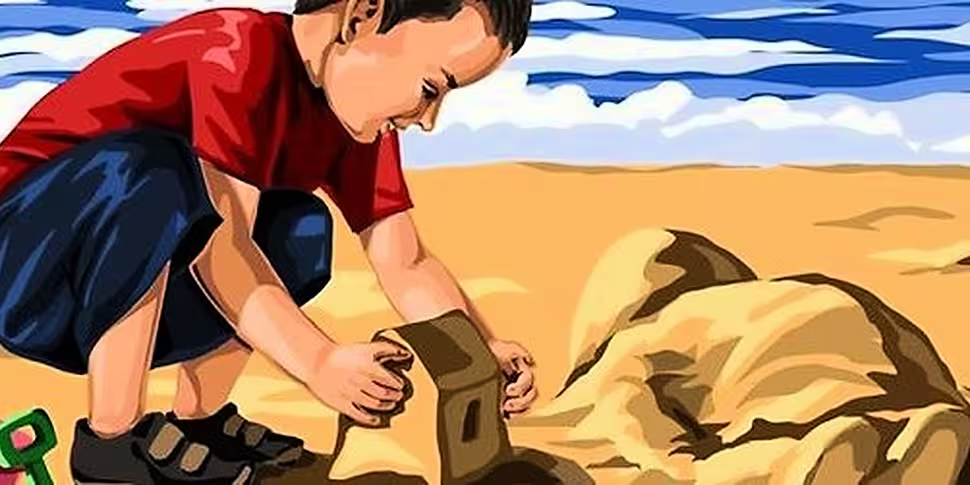How could you heart not be moved by the image of the three-year-old boy lying on the sand? The water lapping around his shorts and bright red t-shirt, Aylan Kurdi, his small body, rests on a Turkish beach, drowned. The world reacts, politicians speak, change comes, and things stay the same. Fourteen more children drowned in the Aegean on Sunday. Why don’t we know their names?
The 14, four babies, five girls and five boys, lost their lives after a wooden fishing boat sank near Farmakonisi, a Greek Island, early on Sunday. Along with a further 24 drowned adults, they were part of the 112 passengers on the boat. The 38 dead mark the biggest recorded death toll in Greek waters since the crisis and exodus of Syrian citizens started.
But, for all intents and purposes, Sunday's story has already faded from the news cycle, and we're merely bracing ourselves for the next one. For the next boat to go under, the next additions to a list of statistics, for the next round of discussions over crises, swarms, culpability, border control, and so on, and so on. Aylan Kurdi, though, still inspires outrage and tears, his name remembered. Less quick to come to mind are the names of either his mother or brother – Rehan and Galip, respectively, though Google had to help jog my memory.
Aylan wasn't the first Syrian child to lose his life in this crisis. On the day he died he wasn't even the only child to lose his life in this crisis. Nor, as Sunday goes to show, would he be the last. So why do we care so much more about his plight than anyone else's?
A US psychologist thinks it’s because of how we’re hardwired to care.
"The difference between 88 and 87"
Paul Slovic, a professor at the University of Oregon, has carried out a number of experiments examining how and why we often fail to intervene in humanitarian crises, why we’re slow to react to them as we watch them unfold, and why a sole child’s story can tug at our heartstrings far stronger than the news of scores dead.
Looking into how the US responded to a range of humanitarian crises, from the Holocaust to Darfur, Slovic’s research indicates that it’s not that we are uncaring when exposed to large-scale tragedies, it’s merely that the human brain reacts in increasingly bizarre ways when confronted by a crisis of the magnitude of the Syrian exodus.
In a cool and rationally-thinking world, it would be fair to assume that the global community would care twice as much about tragedies affecting 100 people as those affecting 50. But Slovic’s experiments have repeatedly shown that really isn’t how it goes down when the mind contemplates crises – instead, we often care more when only a few lives are lost, because when there are many, it’s just easier to look the other way.
"The first life lost is very precious, but we don't react very much to the difference between 88 deaths and 87 deaths," Slovic said in an interview. "You don't feel worse about 88 than you do about 87."
It actually gets worse; Slovic’s research also showed that the amount of compassion we feel for fellow human being going through an event on the scale of Syria can get weaker and diminish as the number of victims or people displaced increases.
Working harder to save fewer
During an experiment in Israel, Slovic quizzed volunteers in one group on whether they would be willing to raise $300,000 in order to save eight children were dying of cancer. Another group was asked to see how much money they would be willing to collect in order to save one lone child with cancer. Slovic found that people were, by and large, far more willing to donate money to save one life than to save eight.
"When we trust our feelings in these cases, we are led down the path of turning our backs on the suffering of many people," Slovic said. "Even though we don't think of ourselves as uncaring, if we trust our moral intuition, it is not designed by evolution to respond accurately to these types of situations of mass tragedy."
Slovic's work showing people's tendency to intervene in situations in which they can save all or most of the victims, but to turn away from situations in which they cannot help most of the victims, has important ramifications for the new administration. "It is often the case we can do something even if we can't do everything, and we ought not do nothing just because we can't do everything," Prendergast said.
Slovic’s study into why people are more driven to intervene in situations where they can try to save or react to the plight of a small number of victims while shying away from the impossible task of a huge number of nameless victims has important implications for the Syrian crisis. It affects how stories like Aylan Kurdi’s are shared and told, and offers some explanation as to why other victims remain nameless.









